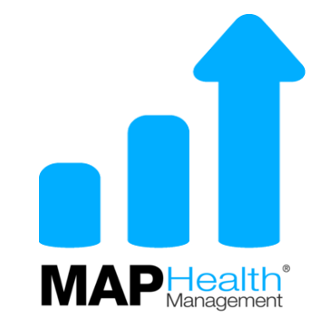Finding the Words: Why Population Health Management Makes Sense
August 26, 2016 Haven Lindsey
 If you are anything like me, you’ve experienced times when someone makes a comment to you and you know there is something you want to say…you know there is a rebuttal or a reply, but you can’t quite find the words. Instead, you say nothing or you say something but not what you really wanted to say. Later the response comes to you and you think, “ooh, that’s what I wanted to say!”.
If you are anything like me, you’ve experienced times when someone makes a comment to you and you know there is something you want to say…you know there is a rebuttal or a reply, but you can’t quite find the words. Instead, you say nothing or you say something but not what you really wanted to say. Later the response comes to you and you think, “ooh, that’s what I wanted to say!”.
That’s exactly what happened to me the day a friend and I were talking about the tragic death of Prince. The world had just learned he died of an overdose. As she and I discussed it she commented, “I’m so shocked, I thought he was a Christian.” And I sat in silence. I heard her words, I felt them resonate, yet had no response – I couldn’t find the words.
More than 100 Americans die every day of an overdose. They die because they are sick. They die because they aren’t getting treatment. They die because overdoses are a manifestation of the disease. Their deaths are not related to any religious affiliation and it’s our job to educate people about that. I dropped the ball that day with my friend and I’m picking it up now.
Addiction is a tricky disease. The symptoms are often behavioral in nature and it is easy to think that its sufferers are acting out, misbehaving, and/or being jerks. It’s easy to forget how sick they are. Today, our nation is struggling with major problems in almost every aspect of its healthcare system. When it comes to keeping our citizens healthy, we are failing. Compared to the overall health of citizens in similar socioeconomic nations, we’re consistently last on the list.
Part of the problem is that, historically, we have viewed addiction treatment as if it were one of those boxy, ill-fitting one-size-fits-all t-shirts. Addiction to alcohol? Opiates? Meth? You’re a middle-aged woman? A teenage guy? You live on the West Coast? The Northeast? You’ve had an addiction for six months? Six years? You’re the first in your family to have an addiction? You come from generations of addicted family members? You started using when you were 13? You started using when you were 53? Childhood trauma? Abuse? Neglect? These variables are very real qualifiers that make up an individual’s degree of addiction. Yet, most everyone receives the same 30-90 days of treatment (if they are among the fortunate who actually receive treatment). The notion that everyone with an addiction or Substance Use Disorder will experience the same results by receiving the same treatment makes no sense yet arguably, for the most part, that’s what we’ve done. Just like the boxy t-shirts that fit a few but not all, the one-size-fits all treatment approach will help certain people but it doesn’t come close to effectively treating everyone.
An effective way to treat addiction is to consider the individual first, rather than the illness. Population health management is the way we do that and it starts with a comprehensive clinical overview – one that considers age, gender, family history, current living situation, general health, whether or not there is a co-occurring disorder, and all the factors that comprise their disease. An individualized treatment plan can include a timeframe and structure with an extended care plan in order to track the person’s progress and learn what’s working and what isn’t. And with this holistic approach, treatment outcomes data can be collected, analyzed, and used to learn precisely how effective certain treatment plans are.
Population health management is the process of offering individualized, comprehensive effective treatment by combining patient data with patient histories and records and using technology to communicate and collaborate. It’s about using data to see where you’ve been so you can better understand where you’re heading. It’s about delivery systems that are well-managed and based on real-world components. So a 58-year old male veteran, with high blood pressure and is pre-diabetic who has been addicted to alcohol for 15 years, receives a different treatment plan with different resources than a 23-year old female who survived incest, has depression, and is addicted to heroin.
Addiction is a chronic illness and like any chronic illness it requires long-term management. It requires knowledge of the disease, how it manifests, and how individuals and their families can learn to live and thrive while managing it. Population health management provides us with the tools we need to effectively treat addiction including extending the continuum of care throughout those critical 15-18 months following treatment when the risk for relapse is highest.
A comprehensive population health management plan will prove to be most efficient, effective, reliable, and will help our system get back on its feet. As fewer people die from addiction, more people achieve recovery and live meaningful lives, and efficacy rates are collected and reported, every one of us will be more educated and knowledgeable about addiction. We’ll have a deeper understanding of what the disease is, how to effectively treat it, and how not to be afraid of it.
Invariably, from time-to-time, someone will render a comment that all but silences us, but rather that sitting numbly in silence, we’ll find the words. Yes, Prince died of an overdose. Perhaps he was a Christian, perhaps he wasn’t – that isn’t relevant. What we know for sure, is he was sick. And he died from the disease of addiction just like thousands of Americans do every day. It needs to stop and we now understand what we need to do.
Our country is beginning to find the words.
____________________
Haven Lindsey lives in Austin, TX and works for MAP Health Management, LLC.








